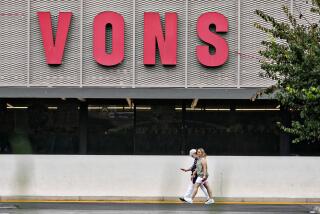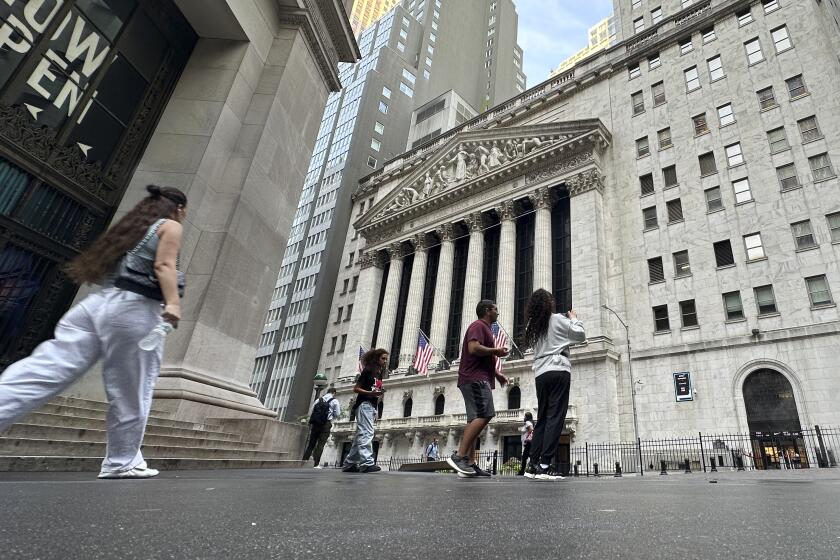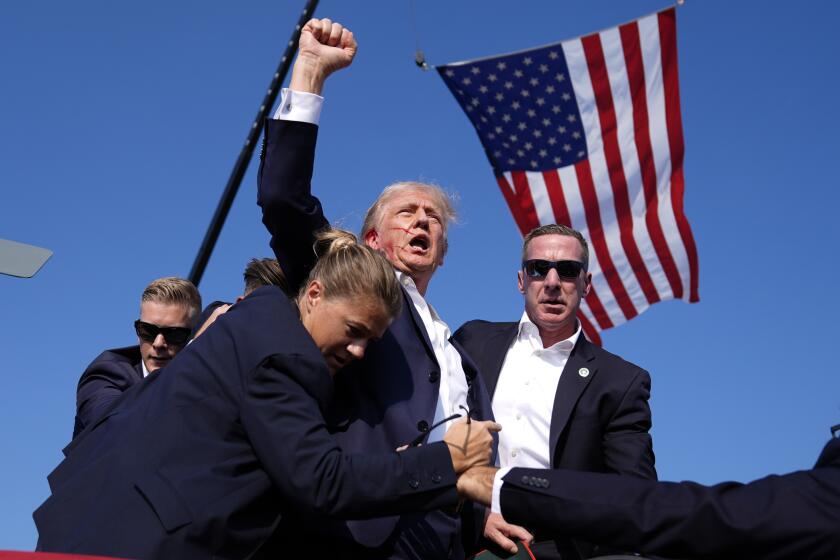Lawsuit accuses Bear of fraud
Beverly Hills billionaire H. Roger Wang has accused Bear Stearns Cos. of duping him and his wife into buying 150,000 shares of the struggling brokerage’s stock -- including 100,000 shares on March 14, the day that federal officials first intervened to keep the firm from tumbling into bankruptcy.
The lawsuit is one of many legal actions spawned by the near-collapse of the venerable Wall Street firm. Wang, who operates high-end retail stores in China, is seeking $10 million in damages.
The suit, filed Thursday, claims that Wang and his wife agreed to pay $6.56 million for the stock at prices ranging from $71.96 to $33.44 a share from March 6 to March 14.
Wang says Bear on March 18 illegally liquidated the account that held the stock after Wang and his wife refused to send in unpaid balances on their orders.
The liquidation value of the stock, according to the suit: $947,324 after expenses, or $6.32 a share.
The complaint, filed in Los Angeles County Superior Court, alleges fraud and breach of fiduciary duty. It names as defendants Bear Stearns, broker Joey Zhou and Garrett Bland, a senior managing director in Bear’s Century City office.
Neither Zhou nor Bland returned calls for comment Friday. A spokesman at Bear Stearns’ New York headquarters declined to comment.
The 59-year-old Wang, who has a net worth of $1.3 billion by Forbes magazine’s reckoning, grew up in Taiwan and immigrated to the U.S. in 1971. In 1992, early in China’s boom, he founded a real estate development firm called Golden Eagle International Group in the city of Nanjing. The centerpiece of his empire now is department stores.
Golden Eagle generated more than $1 billion in revenue last year, and analysts who follow the company say it has strong cash flow and is looking for merger and acquisition opportunities. Even so, Golden Eagle’s stock, traded in Hong Kong, has languished in a lackluster market.
Wang, who has a home in Beverly Hills, spends about five months each year in the U.S. and the rest of the time in China. He couldn’t immediately be reached for comment about the lawsuit.
In the suit, Wang says that he and his wife, Vivine, became customers of Bear in 1993 and that Zhou became their broker.
In February, the suit says, Roger Wang decided he wanted to buy shares of San Marino-based East West Bancorp. Vivine Wang called Zhou, according to the suit, and the broker set up an account in her name to use for the stock purchases. The suit doesn’t explain why a new account was needed.
Roger Wang bought 50,000 shares of East West from March 3 to March 6. And beginning March 6, the suit says, he also started buying shares in Bear, and continued to do so even as rumors began to hit Wall Street that the company was having funding problems.
On March 11, according to the suit, Wang went to a lunch meeting at Bear’s Century City office. The suit alleges that Bland told Wang that “Bear Stearns was financially sound, that its stock value should be at least $85 per share, and that now was a great time to invest in the stock.”
On Friday, March 14, while Bear stock was plummeting from $57 to $30 amid rumors that it might fail, Wang put in an order to buy an additional 200,000 shares, relying in part on Bland’s “favorable recommendations,” the suit says.
Amid the day’s wild trading, Wang -- who says he was scheduled to fly out of the country that day and was unaware of the latest news on Bear -- got just 100,000 shares.
Two days later Bear agreed to an emergency buyout by JPMorgan Chase & Co. at $2 a share, a price later raised to about $10.
Wang says when he learned of the “devastating news” of the buyout price, he refused to pay for his final orders of Bear stock. The brokerage, he alleges, then liquidated the account March 18 “without any authority, right or consent.”
The Wangs allege that Zhou, Bland and other unnamed defendants “concealed highly relevant information about Bear Stearns, including specifically its extremely poor and disastrous financial condition.”
Wang also says Bear Stearns wrongly provided him and his wife “with standardized paperwork that incorrectly purported to assert that Bear Stearns was not providing the Wangs with any investment advice.” The suit does not say whether the Wangs signed the forms.
Wang’s lawyer, William A. Stahr of Santa Ana, did not return calls for comment. It was not clear why Wang went to court because brokerage customers typically agree to handle disputes in arbitration.
--
--
tom.petruno@latimes.com
--
Times staff writer Don Lee in Shanghai contributed to this report.
More to Read
Inside the business of entertainment
The Wide Shot brings you news, analysis and insights on everything from streaming wars to production — and what it all means for the future.
You may occasionally receive promotional content from the Los Angeles Times.






